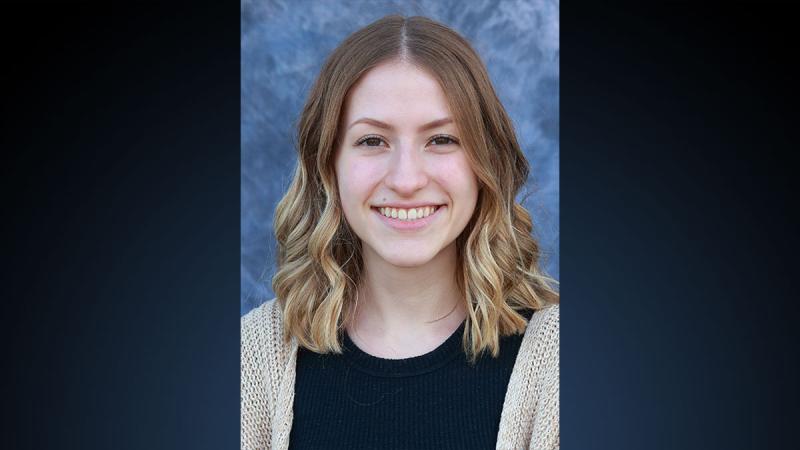
2021 Essay Prompt
Many things go into being a third-culture MK: as a sojourner, you have traveled to a distant land that is both your home, and is not home, at the same time. You have been taken there as a part of a bigger mission or calling. Inevitably, there will be many circumstances and obstacles that have shaped your journey to be unique to only you. With all this in mind, how has being a third-culture MK shaped you, and how will you use that to further the Kingdom of God?
Casey's Winning Sojourner Scholarship Essay
Colors dance across my desk. Out of the corner of my eye I see my small Turkish lamp hanging far above me, constantly reflecting and refracting light. It surprises me that some people only see in black and white and miss the greys. But even more than missing the greys, there is a whole spectrum of color they do not see. The vibrant world of cultures offers a vastly more beautiful range of values and perspectives than either/or.
As for me, I have never had the chance to ignore the spectrum. Ever since I could talk, my parents held lengthy discussions with me about anything and everything, allowing me to sample as many perspectives as I could handle. I wanted to tear my hair out when we had two-hour-long discussions about how my kindergarten bully might be feeling hurt for unknown reasons and taking it out on me. Having moved to Ukraine as a three-year-old, I did not yet have any context for what was happening—I was just a kindergartner trying to get used to eating pasta for breakfast, while the kids around me were trying to figure out if I was an American infiltrator like they had seen in the movies.
The colors change again, and the lamp grabs all of my attention. I am swept back to Istanbul where I purchased it. In the exotic market overlooking the Bosphorus Strait, where East meets West, a mixture of cultures and heritages circles around me. This sensation is not unsettling; in fact, it feels like home—Ukraine, the borderland between eastern and western Europe, where there is a constant intermingling of cultures. Sometimes compatible and other times clashing, Russian and Ukrainian facets are always present.
Now it is different, a war has broken out, and I have witnessed a peaceful coexistence turn into hostile aggression. In one act of occupation Russia broke years of camaraderie to steal not only Ukraine’s territory but also their hard-fought identity.
If I picture my life as a blend of colors—blue representing the United States, my passport country, and yellow representing Ukraine, where I grew up—I am a shade of green. I understand both cultures and yet am not defined by either. I get to pick and choose the best of both worlds. Back in the marketplace I rummage through my bag of purchases, an eclectic heap of contrasting and complementary colors, each uniquely reflecting the person I have become. The bright hues of American optimism stand out against the dark undertones of post-Soviet realism. The durable Ukrainian cloth of perseverance pairs nicely with the bold pattern of red, white, and blue independence.
The strongest shades, however, are the values of justice and compassion that define me. What resonates with me most about Jesus’ gospel of the Kingdom is that it is all encompassing. I love how God is concerned about more than just the spiritual—He cares deeply about the whole person, and the whole of creation. His plan is to restore creation to what it was originally meant to be. This means restoring relationships between God and man, man and man, and man and the world around him. And we are invited to join Him in this purpose. God’s ultimate Kingdom will be a masterpiece, where the colorful interplay of cultures harmoniously forms a beautiful whole.
I have seen the brokenness that comes from being misunderstood and misrepresented. This year the protests across America have brought social injustices to everyone’s attention, including mine. As I have contemplated my future, and what role I will play, the centrality of justice and compassion have become even more important to me. Micah 6:8 says, “What does the Lord require of you but to do justice, and to love kindness and to walk humbly with your God?” I want these values to characterize me—to be an instrument of justice and spread kindness by providing for people’s tangible needs and fixing broken systems.
I have also seen personally how broken systems trap the marginalized in the Ukrainian orphanage system. I quickly fell in love with one particular group of forgotten-about kids. Since meeting them in middle school, I have had the privilege of making recurring visits to see them as well as fundraising on their behalf through my business. Learning more about these kids’ plight, was the first time I felt utterly heartbroken by the injustice of a system. For instance, I couldn’t fathom orphanage directors purposefully keeping children from getting adopted because it affected their salaries. From these experiences, I gained a vision for fixing broken systems, not just reacting to the pain they cause.
I want to lead an organization that will improve the standard of living in communities around the world, without dulling their vibrant colors. Every culture is a piece of stained glass, fitting into a larger mosaic. The hues, though different, complement each other when they are valued and seen. With God’s help, I want to assist in the process of bringing these broken pieces back together, to beautifully function in the way He designed them to.
The lamp’s colorful dance continues, mirroring the life experiences that have shaped the contribution I aspire to make.
